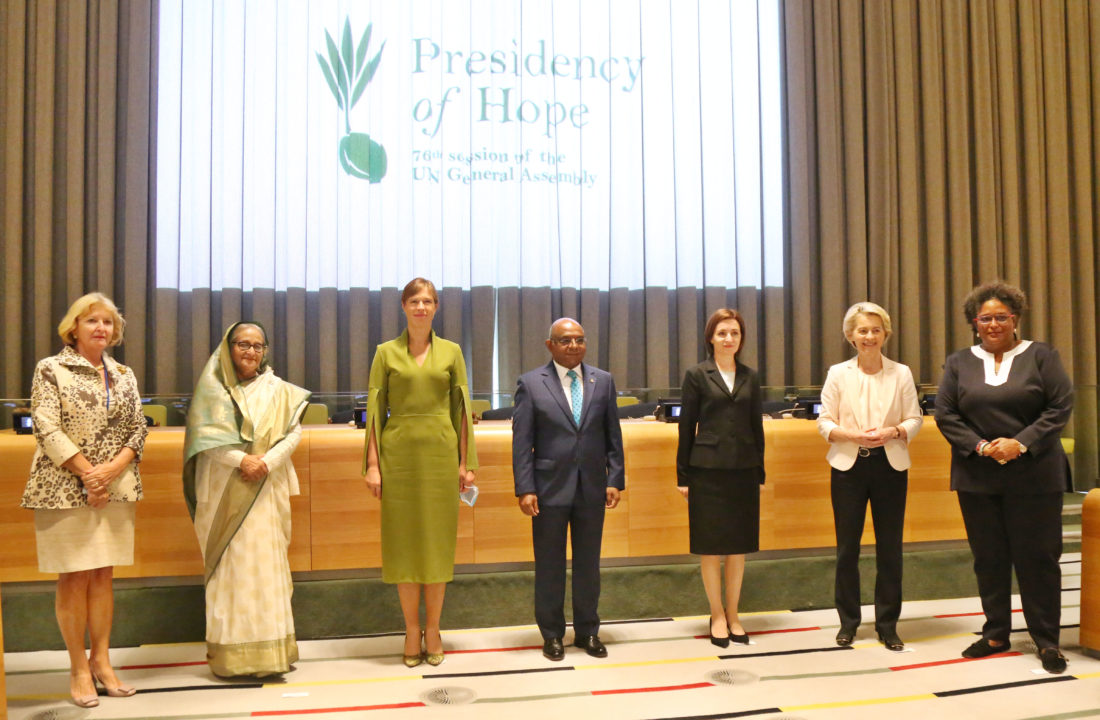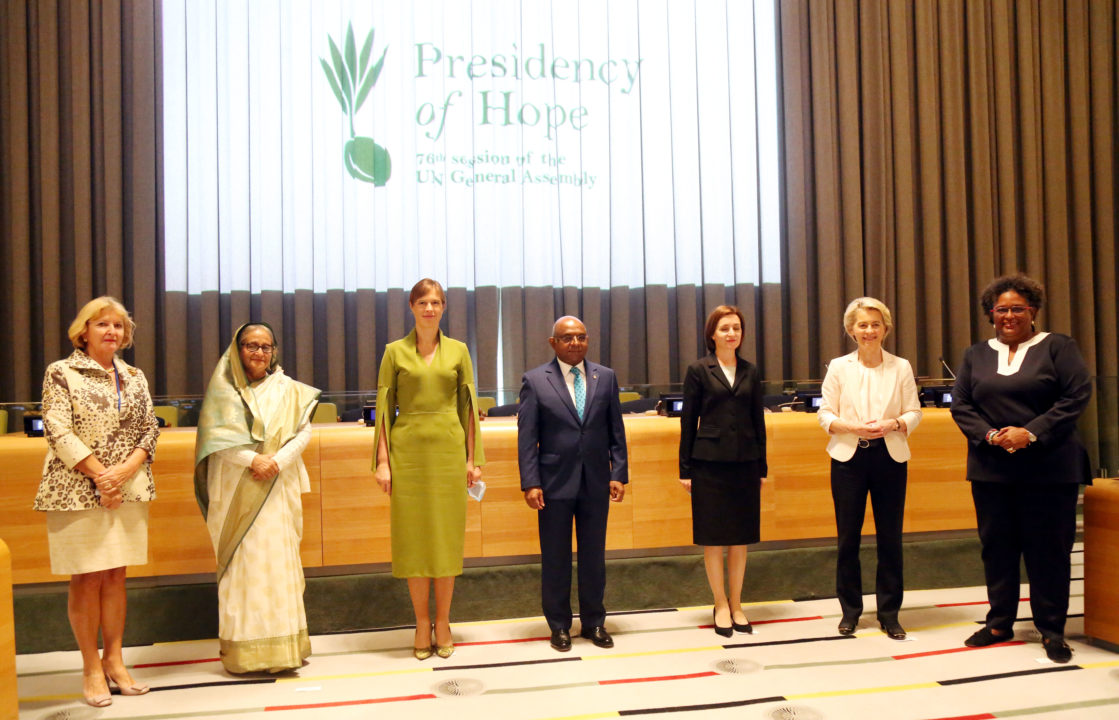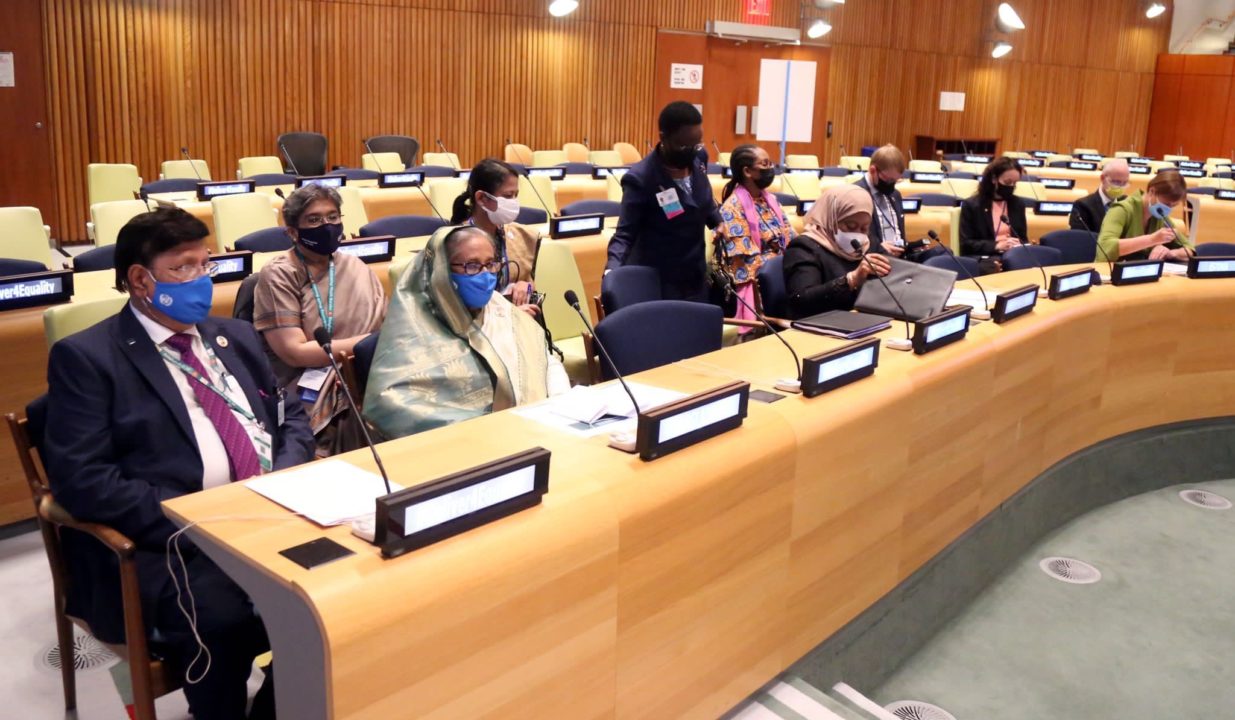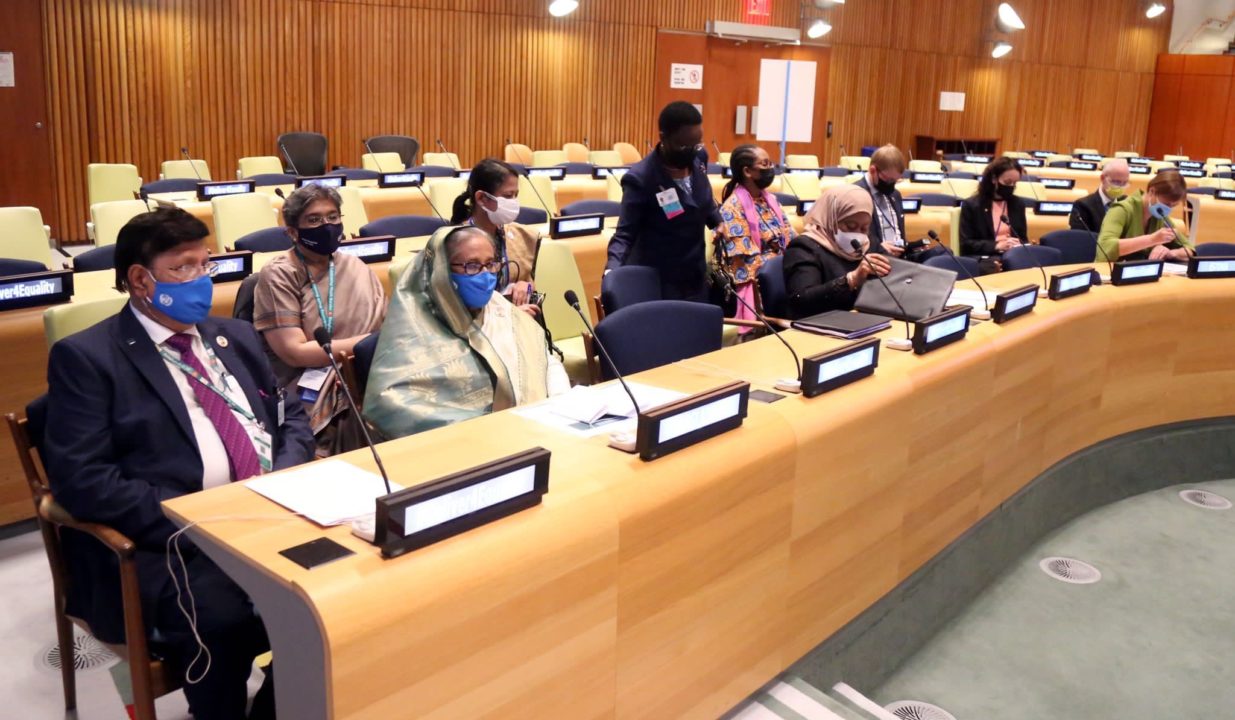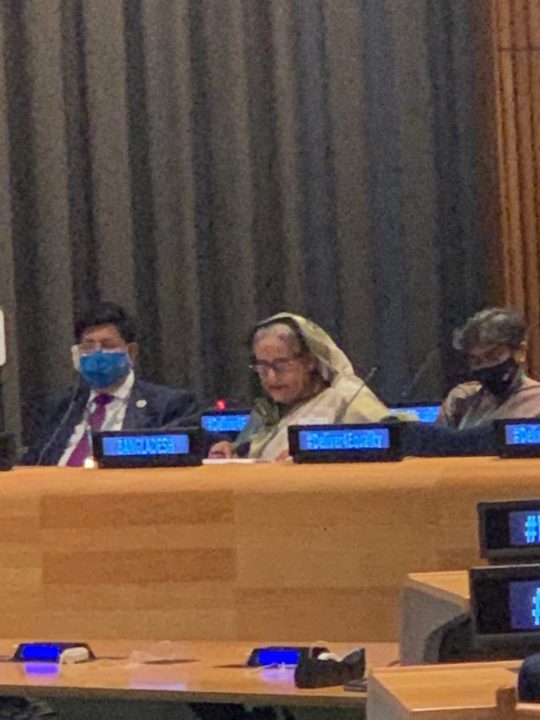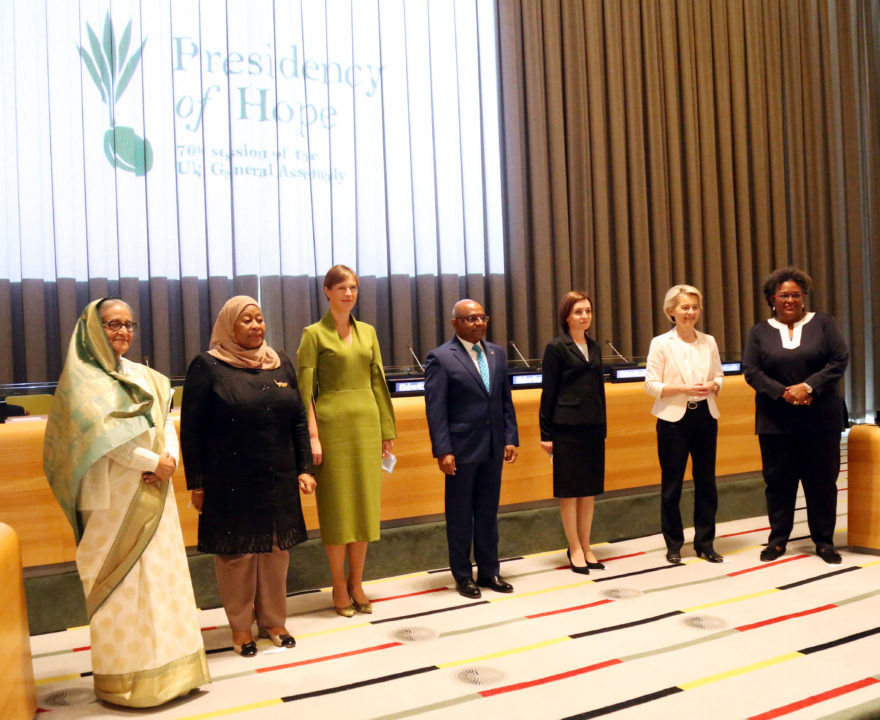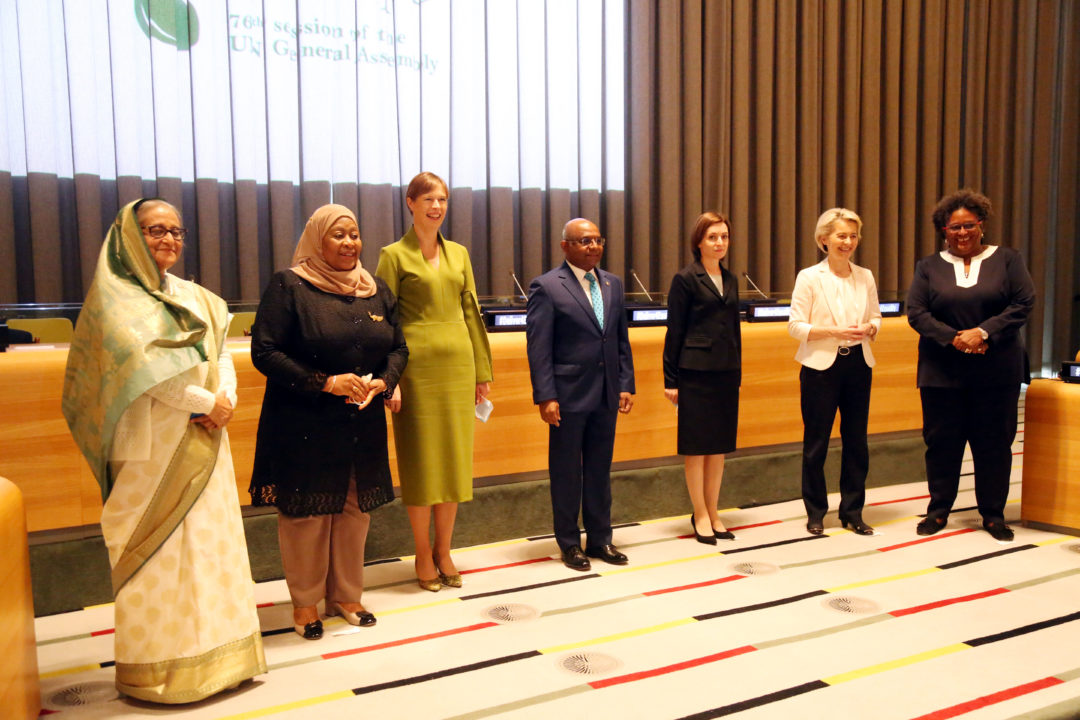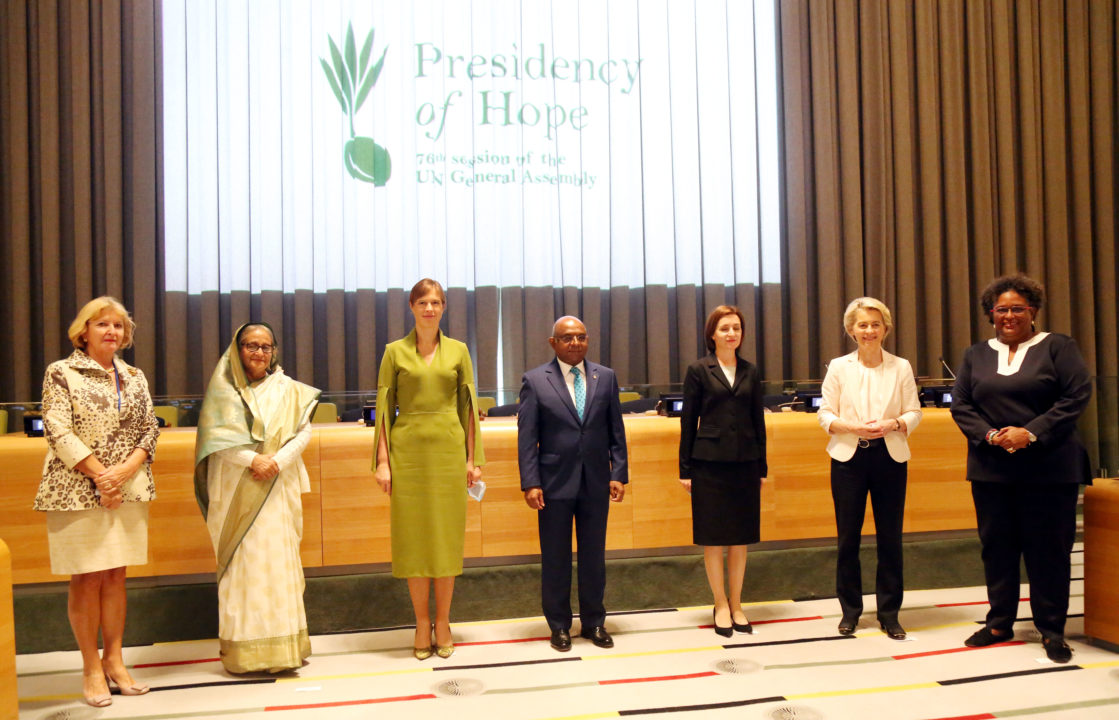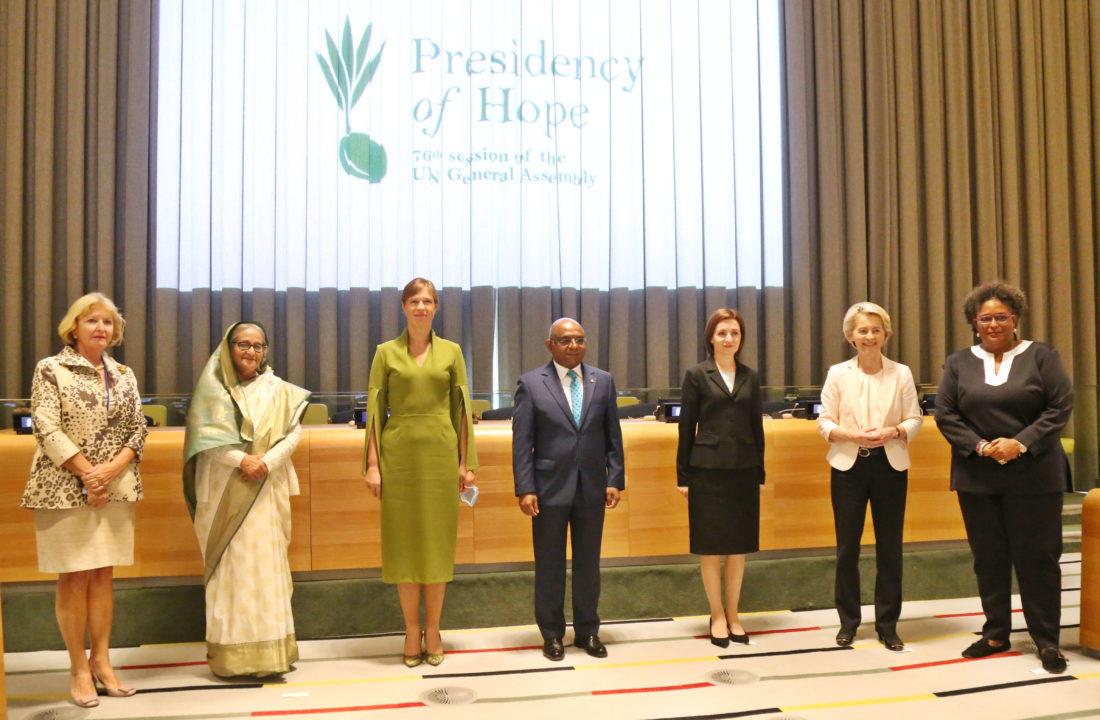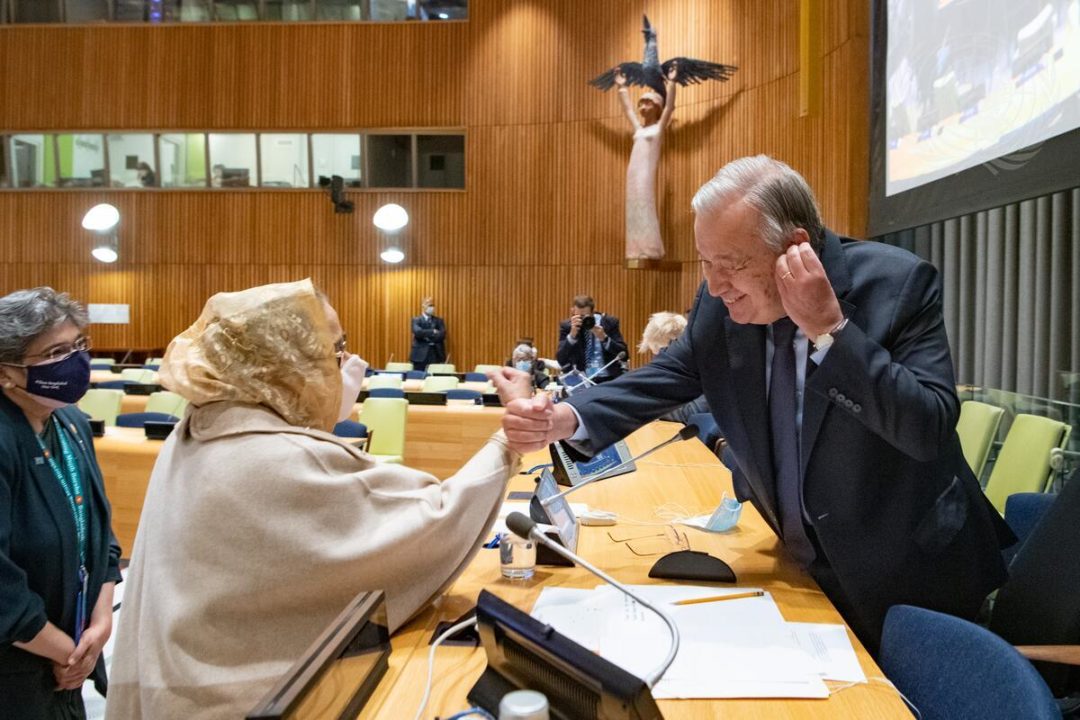Mr. President,
Thank you for convening us. I am very pleased to join my fellow colleagues here today. It is greatly empowering to be with you all. I strongly feel that we can establish a Women Leaders’ Network, which can bring us together, not just for one-off meetings, but to act as a force to ensure real actions to achieve gender equality.
Excellencies,
I would like to begin by paying my tribute to all the women who are fighting the pandemic from the frontline.
The impacts of COVID have been especially hard for women. Unpaid care work has increased. Gender-based violence has risen. UNICEF anticipates additional ten million child marriages before the end of this decade.
In my own country, almost 70% of the health care workers are women, and they are in the frontline in the battle against the pandemic.
80% of our RMG workers are women. Women constitute the majority in the informal economy. Many of them lost their jobs and income. Two million migrant workers, including women have returned home.
Our hard-earned progress is at risk of rollback. We need to act urgently to stop this. For that, we must place women at the front and center of COVID recovery.
Mr. President,
In Bangladesh, to keep our economy afloat in the pandemic, we announced 28 stimulus packages worth 14.6 billion US dollars. Our social safety net programmes have been expanded to cover 11 million people, most of whom are women and children.
We made special allocation for women-led SME sector; introduced special skill projects in all districts, and announced interest-free mortgage and loan facilities for women entrepreneurs.
Our 333 ‘helpline’ is saving many women and girls from violence and child marriage.
At the commemoration of the 25th anniversary of the Beijing Conference, I pledged to raise women’s participation in the workforce to 50:50 by 2041. Recently at the Generation Equality Forum Paris, I committed to ensure gender equality in ICT sector by 2041. I stand by those commitments.
Mr. President,
Allow me to highlight three points:
First: I commend you for founding the Advisory Board on Gender Equality. This now needs to be localized. We need gender champions at every level, especially at the grass roots level, and we can lead by example.
Second: Women-led organizations need to be nurtured and supported with sufficient political and financial means. The UN has an important role in supporting such efforts.
Finally: I invite you to convene a leaders’ summit to reinforce our common agenda for gender equality. All leaders – not just us – should join and present concrete commitments for advancing gender equality.
I thank you all.

